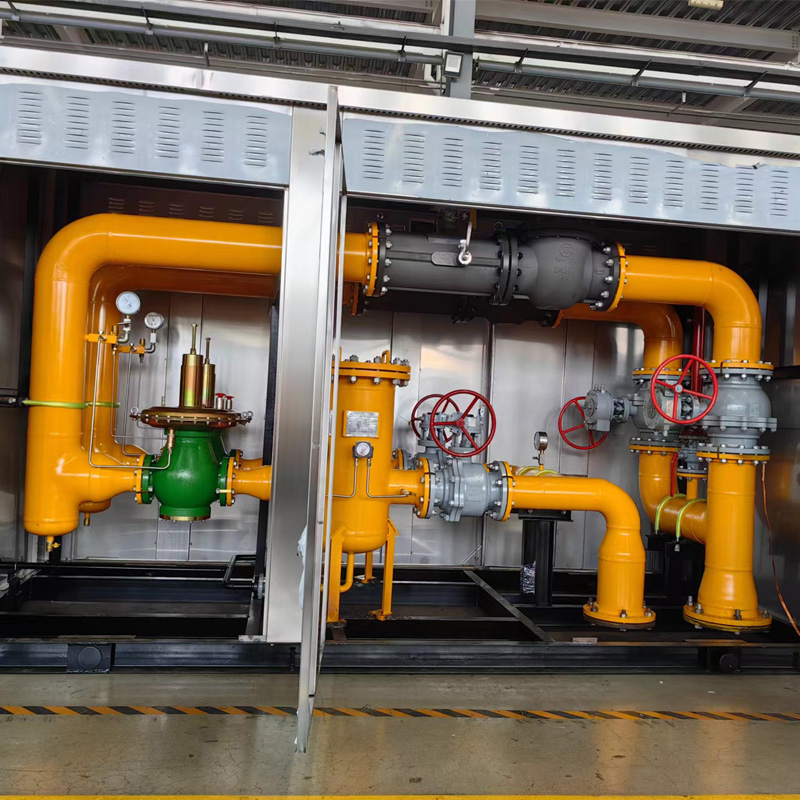
Nov . 13, 2024 17:52
Back to list
cng
The Growing Significance of Compressed Natural Gas (CNG)
In recent years, the global energy landscape has undergone significant transformation due to the increasing demand for cleaner and more sustainable energy sources. Among the alternatives that have gained attention, compressed natural gas (CNG) has emerged as a viable and efficient fuel option, especially for transportation and power generation.
.
One of the most notable advantages of CNG is its environmental benefits. When combusted, CNG produces significantly lower levels of carbon dioxide (CO2), nitrogen oxides (NOx), and particulate matter compared to traditional fossil fuels. According to studies, vehicles powered by CNG can reduce greenhouse gas emissions by up to 30% compared to gasoline and 20% compared to diesel. This reduction is crucial in urban areas where air pollution poses serious health risks.
cng

The transportation sector is one of the largest consumers of fossil fuels, accounting for a significant portion of global carbon emissions. The adoption of CNG as an alternative fuel for public transportation, such as buses and taxis, has been gaining momentum in cities worldwide. Many municipalities are investing in CNG infrastructure, promoting the transition to cleaner fleets. Not only does this improve air quality, but it also provides cost savings for operators, as CNG is often cheaper than gasoline or diesel. Furthermore, CNG vehicles typically require less maintenance due to the cleaner combustion process, resulting in lower operating costs over time.
Another critical application of CNG is its role in power generation. Combined with advancements in technology, CNG-fired power plants can provide reliable and flexible energy solutions. They can quickly ramp up or down to meet fluctuating demand, making them an excellent complement to renewable energy sources like wind and solar. As countries aim to diversify their energy portfolios and reduce dependency on coal, CNG is seen as a transitional fuel that can help bridge the gap towards more sustainable energy infrastructures.
Despite its benefits, there are challenges to the widespread adoption of CNG. The availability of refueling stations is limited in many regions, which can deter potential users from switching to CNG-powered vehicles. Additionally, while CNG is cleaner than other fossil fuels, it is still a non-renewable resource, and leaks during production and distribution can release methane—a potent greenhouse gas—into the atmosphere. Thus, robust regulation and monitoring are necessary to mitigate these risks.
In conclusion, compressed natural gas represents a promising solution in the quest for cleaner energy. Its adoption in the transportation and power generation sectors offers significant environmental and economic benefits. As governments, industries, and communities work together to overcome existing barriers, CNG can play a critical role in achieving a sustainable energy future, contributing to lower emissions and improved public health. The path forward requires investment in infrastructure, technology, and regulatory frameworks, emphasizing a collective commitment to a cleaner planet.
Next:
Latest news
-
Safety Valve Spring-Loaded Design Overpressure ProtectionNewsJul.25,2025
-
Precision Voltage Regulator AC5 Accuracy Grade PerformanceNewsJul.25,2025
-
Natural Gas Pressure Regulating Skid Industrial Pipeline ApplicationsNewsJul.25,2025
-
Natural Gas Filter Stainless Steel Mesh Element DesignNewsJul.25,2025
-
Gas Pressure Regulator Valve Direct-Acting Spring-Loaded DesignNewsJul.25,2025
-
Decompression Equipment Multi-Stage Heat Exchange System DesignNewsJul.25,2025

